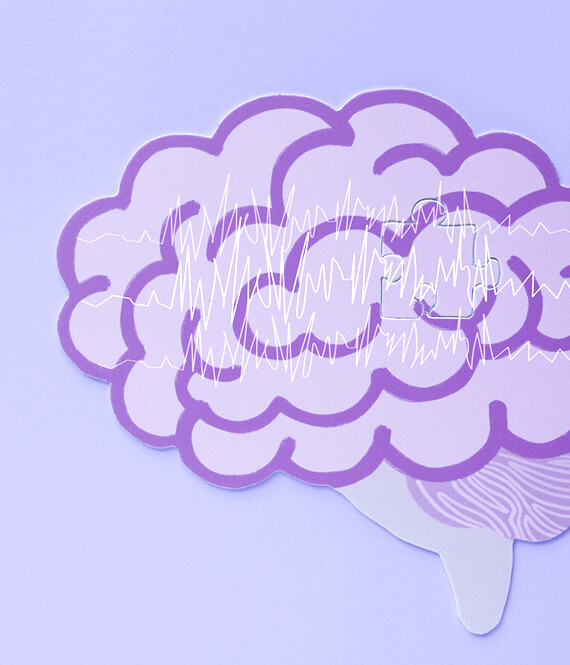
3 Common Signs of a Seizure (And What To Do About Them)
We recommend helpful products in our articles. Read our full disclosure here. The content on this website is not intended to be a substitute for professional advice, diagnosis, or treatment.
Despite being one of the most common neurological disorders globally, epilepsy only affects around 1% of the population.
However, with around 11% of US adults expected to have at least one attack during their lifetime, seizures are far more common.
While a single seizure isn’t necessarily a sign of developing epilepsy, it can still cause injuries and lead to severe consequences, making it paramount to learn about the symptoms of an approaching attack to safeguard your wellbeing and the health of a loved one.
Luckily, there are many strategies to identify the telltale signs of a seizure, prevent it from happening, or reduce the health risks it carries.
Start with this guide.
What Are Seizures?
An Overview
Seizures are a temporary disorder caused by sudden and uncontrolled surges of electrical activity in the brain.
These disturbances can cause changes in a person’s actions, feelings, movements, and consciousness levels.
Seizures come in many shapes, forms, and severity levels, and although tonic-clonic attacks are the most well-known ones, each person’s experience is unique.
Typically, a seizure will last between 30 seconds and 2 minutes and is categorized depending on where it originates:
- Generalized seizures (once called grand mal seizures) affect both sides of the brain at once and spread through multiple lobes;
- Focal seizures (known as petit mal or partial seizures) only affect one side of the brain.
Seizures can be either provoked (usually by variables like high fever or low blood sugar) or unprovoked, and they aren’t necessarily considered a sign of epilepsy.
So, what is epilepsy?
And when is this disorder diagnosed?
If a person is experiencing multiple or recurring seizures that aren’t provoked by an identifiable trigger (i.e., head trauma or brain injury), neurologists will diagnose an epilepsy disorder.
This can be controlled through anti-epileptic medications and lifestyle changes.
However, learning to identify the signs of an upcoming seizure can help people with epilepsy self-control their condition.
3 Common Signs of an Approaching Seizure
The telltale signs of an approaching seizure can vary significantly from one person to another.
However, generally, warning symptoms include:
- Prodrome (early warning signs);
- Aura (late warning signs).
The most common signs of a seizure include the following ones.
1. Sensory Changes and Distortions
Auras are more than just a telltale sign of an upcoming seizure – they are minor seizures in themselves, which usually anticipates a more severe focal attack.
If the area of your brain affected by this minor seizure is the one connected to your senses, you might experience sensory changes and disturbances, which might include:
- Seeing bright lights;
- Hearing unexpected or nonexistent sounds;
- Muffled sounds or feeling like hearing underwater;
- Changes in how food tastes;
- Changes in the smell;
- Blurry vision and seeing things that aren’t there;
- Distortions in how objects appear.
2. Mood Swings and Emotional Changes
Mood swings and emotional changes are common symptoms of the prodrome phase, but you might also experience feelings of panic and anxiety during the aura phase or just before the attack takes place.
Common emotional changes include:
- Uncontrolled feelings of fear, panic, and anxiety;
- Feelings of euphoria, excitement, or joy;
- Déjà vu and Jamais vu episodes;
- Feeling irritable or aggressive;
- Mood swings.
3. Physical Symptoms
Since seizures affect parts of the brain responsible for controlling several essential bodily functions, it isn’t uncommon to experience physical symptoms such as sweating, temperature changes, and excessive salivation.
Some people also report experiencing what is called “gastric uprising,” or a rising sensation in the stomach.
Best Practices To Avoid or Limit the Risks of a Seizure
Learning to recognize the signs of an upcoming seizure can help you put yourself or a loved one in a safe place and avoid many of the health risks that come with an epileptic episode.
For example, if you experience any of the sensations above, you might decide to lie down to avoid falling, go to your bed, stop your car, or inform others that you might have a seizure.
Studies have shown that people who can recognize the signs of an upcoming seizure can use techniques such as self-control and biofeedback to potentially reduce the intensity of the seizure or stop it altogether.
Know When It’s Time to See a Neurologist
No matter whether you have experienced a single seizure or a recurring one, you should always report these episodes to your doctor.
A primary care physician can help you understand when you should consult a specialist and what to expect from seeing a neurologist for the first time.
Pro tip – If you experience recurring features, make sure to teach those around you about the 3C method (remain Calm, Cushion the head, and Call an ambulance if the attack lasts over 5 minutes).
"We love to research problems, examine studies, analyze solutions, and share with you ideas that make life healthier. You can learn about us and our editorial standards here. Have suggestions or feedback to share? Send us a message!."













Leave a Comment